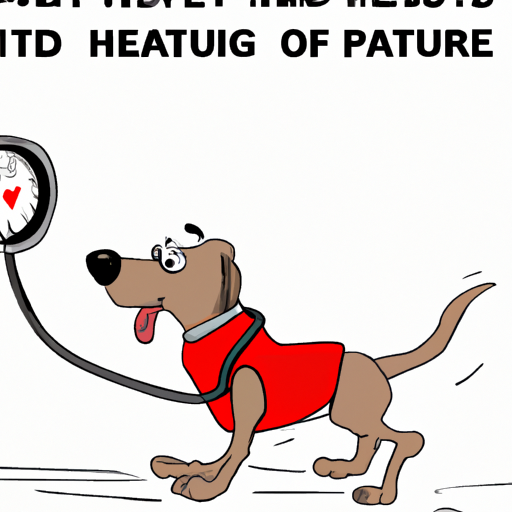Understanding Your Dog’s Heart Rate
As a dedicated caregiver, understanding your dog’s heart rate is an important part of ensuring their health and wellbeing. Just as your heart rate can indicate your physical health, the same is true for our canine companions. A normal heart rate for dogs varies based on size and age, but typically, it ranges from 60 to 140 beats per minute (bpm). This is significantly faster than the average human heart rate of 60 to 100 bpm.
Factors That Affect A Dog’s Heart Rate
Many factors can affect your dog’s heart rate, including:
- Size: Smaller dogs and puppies typically have faster heart rates, while larger dogs have slower rates.
- Age: Puppies have faster heart rates than adult dogs.
- Physical Condition: Active and fit dogs often have slower heart rates compared to dogs that are less active or overweight.
- Emotional State: Excitement or stress can elevate your dog’s heart rate.
How to Measure Your Dog’s Heart Rate
Here’s a simple step-by-step guide to measure your dog’s heart rate:
- Place your hand on your dog’s lower rib cage – just behind the front legs.
- Count the number of heartbeats you feel in 15 seconds.
- Multiply that number by 4 to get the heart rate in beats per minute (bpm).
Remember, practice makes perfect. Don’t worry if you find it hard at first.
What If The Heart Rate Is Abnormal?
Like a well-tuned orchestra, your dog’s body systems function harmoniously when they’re in good health. But if you notice anything that seems off-beat, such as a heart rate that’s too slow or too fast, it’s essential to seek veterinary attention immediately. Such abnormalities could indicate serious conditions like heart disease, heat stroke, or hypothermia.
Tips for Maintaining A Healthy Heart Rate
Keeping your dog’s heart healthy is a crucial aspect of their overall health. Here are some tips:
- Regular Exercise: A brisk walk or a game of fetch can do wonders for your dog’s heart.
- Balanced Diet: Ensure your dog’s diet is balanced and complete with essential nutrients.
- Regular Check-ups: Regular vet check-ups can help detect any potential heart issues early on.
| Tips | Description |
|---|---|
| Regular Exercise | Helps maintain heart health |
| Balanced Diet | Provides essential nutrients for heart function |
| Regular Check-ups | Helps detect potential heart issues early |
Frequently Asked Questions (FAQ)
What is the normal heart rate for puppies?
- Puppies typically have a heart rate of 180-220 bpm.
Can emotions affect my dog’s heart rate?
- Yes, emotions like stress or excitement can elevate your dog’s heart rate.
What if my dog’s heart rate seems too fast or slow?
- If you notice an abnormal heart rate, it’s best to contact your vet immediately.
Your role in your furry friend’s life is essential. By understanding and monitoring their heart rate, you’ll be one step ahead in ensuring they lead a healthy, happy life.



